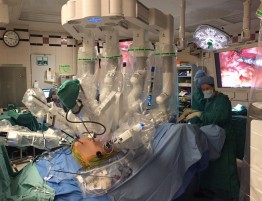Recent reports regarding PPI (Proton Pump Inhibitor) use has caused somewhat of a panic in my clinic. Patients are asking daily whether continuing their acid suppressive medication is safe. They have heard reports stating these medications can lead to weak bones, heart disease, dementia, etc…. More alarming to me is that many patients have switched their prescribed medication to less effective medications or, worse yet, stopped them all together. Do not get me wrong, I am a huge supporter of patients getting involved in their own health care. I encourage patients to research and question, diet and exercise, and explore alternative and complimentary medical therapy. I enjoy the curious patient but decisions regarding a change in your medical plan should be discussed with your health care provider. I will share with you what we know at this time regarding PPI use.
Prior to the clinical introduction of PPIs in 1988, it was extremely common to know someone who had undergone peptic ulcer surgery. Since 1988, medical management with PPIs and the recognition and eradication of H pylori infection has largely replaced the need for surgical intervention for peptic ulcer disease. PPIs are the most potent acid suppressive agents on the market and have effectively treated symptoms of gastroesophageal reflux disease (GERD), erosive esophagitis, Barrett’s esophagus, and prevented bleeding peptic ulcer disease in millions of Americans. Recently, reports have surfaced claiming that PPI use may be associated with weak bones, vitamin and iron deficiencies, gastrointestinal infections, pneumonia, stomach polyps and stomach carcinoid tumors, heart disease, chronic kidney disease, and dementia. There is no wonder patients are scared, but we need to slow down and examine the facts. The facts are that these studies are retrospective in nature, showed weak associations, and have, in many situations, revealed conflicting results. These types of retrospective studies are important to prompt future, well-designed, prospective studies but should not cause patients to panic or physicians to change their clinical practice.
Peptic ulcers and gastroesophageal reflux disease (GERD) can severely inhibit a patient’s quality of life. These conditions can lead to time away from work, limit your ability to enjoy social events, and result in lengthy emergency room visits or hospital stays. PPIs have, in many cases, improved my patients’ quality of life. I urge my patients not to stop their PPIs based on the results of these recent studies. In saying this, it is important to remember all medications have risks and benefits. Before stopping or starting any medication, please discuss the risks and benefits with your health care provider. The most dangerous medication for a patient is a medication that is not needed.
Dr. Thomas Knopp


